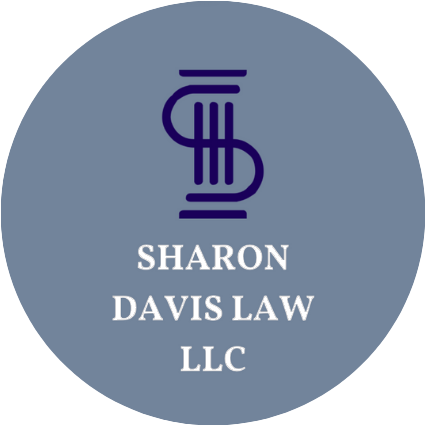|
PRACTICE
Business Formation
Serving Alabama Families With Compassion And Integrity
|
Starting Your Business with Confidence: Business Formation Services in Alabama
Starting a business is an exciting venture, but it involves critical legal steps to ensure that the foundation is strong and compliant with Alabama law. Whether you’re forming a limited liability company (LLC), corporation, partnership, or nonprofit, it’s essential to set up the right legal structure, draft governing documents, and comply with all necessary regulations. At SHARON DAVIS LAW LLC, we support entrepreneurs and small business owners in establishing their ventures, providing guidance on everything from selecting the right business entity to preparing essential documents, including bylaws, articles of incorporation, and operating agreements.
Why Business Formation Matters
Choosing the appropriate business structure is crucial for managing liability, tax obligations, and management responsibilities. The right legal framework protects personal assets, clarifies ownership rights, and ensures smooth operation. Here’s a look at common business entities and how SHARON DAVIS LAW LLC helps clients navigate each option:
1. Limited Liability Company (LLC)
An LLC offers the flexibility of a partnership with the liability protection of a corporation. Owners, called members, are generally protected from personal liability for the company’s debts and obligations. LLCs are popular for small businesses due to their simplicity, tax flexibility, and limited administrative requirements. We help clients draft an operating agreement, which outlines member roles, profit distribution, and decision-making processes.
2. Corporation (C-Corp and S-Corp)
Corporations are independent legal entities, meaning they exist separately from their owners (shareholders). A corporation can be a C-corporation, which is taxed at the corporate level, or an S-corporation, which passes income and losses through to shareholders for tax purposes. Corporations are ideal for businesses seeking outside investment or planning for significant growth. SHARON DAVIS LAW LLC assists with filing articles of incorporation and drafting corporate bylaws that establish shareholder rights, board responsibilities, and operational rules.
3. Partnership
A partnership is an arrangement where two or more individuals share ownership and operational responsibilities for a business. General partnerships provide flexibility, but partners are personally liable for business debts. Limited partnerships (LPs) and limited liability partnerships (LLPs) offer some liability protection. We guide clients through drafting a partnership agreement, which governs partner roles, profit sharing, and dispute resolution.
4. Nonprofit Organization
Nonprofits are formed to serve a public or community purpose rather than generate profit for owners. Nonprofits can qualify for tax-exempt status if they meet certain requirements. Our firm assists with drafting articles of incorporation for nonprofit status, obtaining tax-exempt status, and advising on compliance with Alabama and federal regulations.
Key Documents for Business Formation
Regardless of the business type, certain documents are essential for legal compliance and smooth operation. SHARON DAVIS LAW LLC prepares these foundational documents to ensure that your business starts on solid legal ground:
1. Articles of Incorporation or Organization
These documents are filed with the state to legally establish the business. For corporations, the articles of incorporation outline the structure and purpose of the business. For LLCs, articles of organization serve a similar function, formally creating the company. Our team drafts and files these documents, ensuring compliance with Alabama’s business regulations.
2. Bylaws and Operating Agreements
Bylaws govern how a corporation is run, specifying the responsibilities of directors, shareholders, and officers. Operating agreements serve a similar purpose for LLCs, outlining member roles, decision-making processes, and ownership distribution. These agreements are crucial for avoiding conflicts and establishing clear operational guidelines. SHARON DAVIS LAW LLC drafts customized bylaws and operating agreements that align with your business goals.
3. Partnership Agreements
For partnerships, a partnership agreement details each partner’s roles, responsibilities, and profit-sharing arrangements. This agreement also outlines procedures for adding or removing partners, resolving disputes, and dissolving the partnership if needed. We work closely with clients to create partnership agreements that protect each partner’s interests and provide a clear framework for managing the business.
The Business Formation Process
The business formation process can vary depending on the type of entity, but SHARON DAVIS LAW LLC simplifies each step:
1. Entity Selection and Planning
Our team helps you select the best business structure based on your industry, goals, and liability concerns. We discuss the pros and cons of each entity type, considering factors such as tax implications, personal liability, and future growth plans.
2. Drafting and Filing Foundational Documents
Once the entity type is determined, we draft and file the required documents with the Alabama Secretary of State. This includes preparing articles of incorporation or organization and creating bylaws or an operating agreement. Our team handles all necessary filings, ensuring compliance with state requirements.
3. Obtaining Necessary Licenses and Permits
Depending on your industry, certain licenses and permits may be required before you can legally operate. We assist clients in identifying and obtaining these licenses, whether local, state, or federal, so you can start your business confidently and compliantly.
4. Setting Up Financial and Compliance Systems
Maintaining proper financial records and complying with regulatory requirements are essential for every business. SHARON DAVIS LAW LLC advises on setting up record-keeping systems, maintaining tax compliance, and preparing for annual filing requirements to keep your business in good standing.
|

